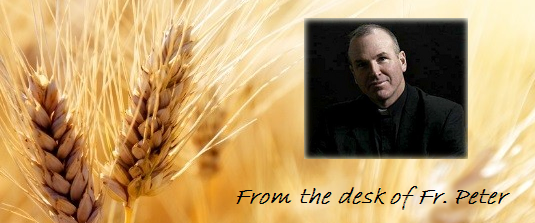May the Good News lift you in joy and peace!
The historical context of the first reading indicates that the people are just returning to Jerusalem where the Temple had been desecrated and is badly in need of repair while the people themselves suffer ignorance of God’s covenant and law because of their captivity in the Babylonian exile. The focus of Ezra and Nehemiah is twofold: repair the Temple building and teach the people to live the law and covenant. The people need to be restored physically and spiritually to reclaim their identity as God’s holy people.
In the Gospel, Jesus has just returned from the desert where he struggled against the temptations of the devil. By overcoming all the temptations, Jesus does not succumb to the captivity of sin and maintains his identity as God’s Beloved Son. Jesus comes in the power of the Spirit to announce the good news of salvation and a promise of favor from God.
The combination of both readings beckons us to evaluate ourselves before God and identify the things that hold us captive. But we are not to punish ourselves with negative thoughts about ourselves, our failings, weaknesses or past sins. Rather we are invited to trust Jesus’ promise of God’s favor ever more deeply and rejoice! This is a time of liberation and deliverance! God’s goodness and mercy are not just for a day or a year, but from the moment Jesus announced it until the end of time. When Jesus said “Today, this scripture passage is fulfilled in your hearing” he meant that this fulfillment is in him from now on.
St. Paul’s letter to the Corinthians reminds us that we have a special relationship with other people of the church—spiritually we’re members of Christ’s own body. The gifts that all the members have received are for service and the good of others—just like the ones Jesus announced. Giving of ourselves and receiving from others are the concrete forms of the communion we have as members of the one body and it is the concrete expression that strengthens us spiritually and brings joy. As God’s beloved child, how do you experience this good news today? How do you proclaim this good news to others each day? God bless you always! +++ Fr. Peter

